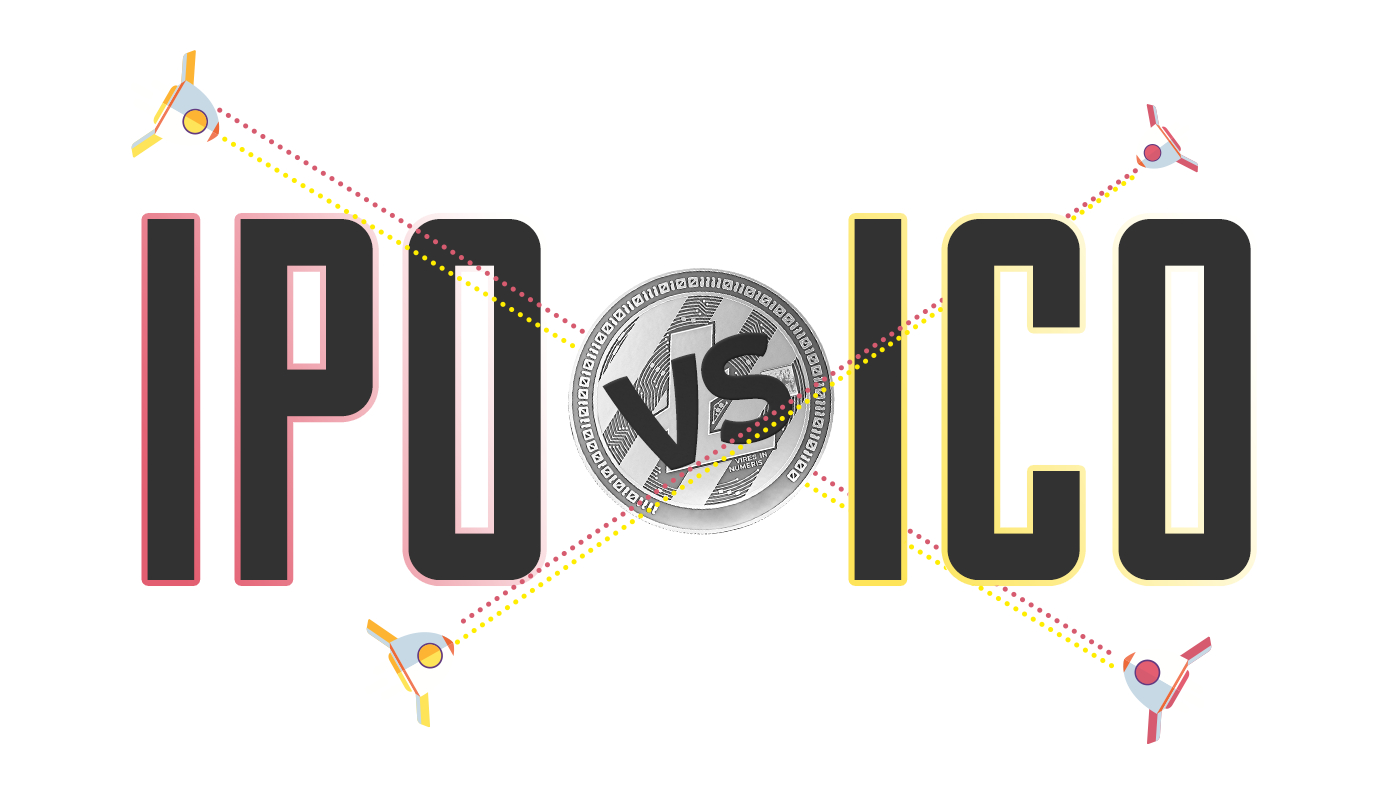ICOs have exploded in popularity over the last year. If youre wondering how they compare to traditional IPOs, heres a primer.
What is an IPO?
An IPO (Initial Public Offering) is the first public sale of a private company's shares. Companies need to be large before its worth holding an IPO, although theres no size requirement. Before that, a company belongs to its founders and people who have invested in it. That could include anyone from the founder's mum to a venture capital fund. People who buy shares are then part owners of the company, even if they only own a tiny fraction. A majority shareholder or the largest shareholder can have a lot of authority. In essence, an IPO is a way of giving away parts of a company. The key change is that the company can't decide who buys each share, which they can during the private stage. IPOs are subject to tight regulation, requiring meticulous reporting and communication with shareholders.
Whats the point of an IPO?
Why would anyone want to give away pieces of their company? There are a few main reasons. First, financing. Selling shares can help raise funds for new opportunities at a lower cost than loans. Second, an IPO can signal credibility. It shows a company is reliable enough for the public to invest their own money in. It's a form of indirect marketing which strengthens the company's reputation. Going public will also attract media attention. Think about how many articles are written about stock prices. Each gives the company in question free publicity. Private companies tend to miss out on media scrutiny. As awareness spreads, demand for stock increases. A company may want to diversify its shareholders, to prevent a few people from having control over it. More competition can also benefit original shareholders by raising prices. Now that we know what an IPO is, heres how it compares to an ICO.
What is an ICO?
An ICO (Initial Coin Offering) is the
cryptocurrency equivalent of going public. Before launching a digital currency, a company will crowdfund its production by offering investors the chance to buy tokens. If they raise enough funding, the coins will become usable. Investors either pay in fiat or in another cryptocurrency (at the time of writing, usually Bitcoin or Ether.) The value of this is twofold. First, the company can establish demand. Second, it's a convenient way to distribute some coins which can circulate. Those without the capacity to mine can get in at the very beginning. Much like an IPO, an ICO may attract attention and promote the company. Its also easier to set up. Since Ethereums successful launch, hundreds of ICOs have raised billions in funding.
What does it take to launch an ICO?
Launching an ICO is simple.
Launching a successful, credible ICOis more demanding. While there are few formal requirements, there are accepted conventions. First, the company will release a white paper describing their proposal. Crypto white papers tend to describe the coin's:
- Purpose
- Potential uses
- Philosophical or political leaning
- And underlying technology
White papers should be descriptive and technical, not entertaining. The intent is to explain the point, so investors can establish if demand exists. Investors tend to fall into two camps: those who believe the currency has a real purpose and those looking to make money. The latter group may help finance an ICO in the short-term, but it is the former group that make it work in the long-term. At this point, the company should be clear on their legal standing. Regulations need to be checked. Terms and conditions set. A funding goal calculated. A team assembled. The currency should be a real company, not a mere idea. After an extended marketing campaign, a typical ICO will run for between a fortnight and a month.
The Difference
On paper, IPOs and ICOs may sound much alike. Companies launch both for the same core reasons: financing, promotion and reputation building. Think of it this way. An independent cafe selling zucchini bread and pour-over coffee couldnt hold an IPO. While the funding could help them expand, the costs would be too high to be worthwhile. IPOs are expensive (often costing millions) and require careful legal due diligence. A cafe is unlikely to have the information investors need before they touch a stock. Your local cafe could, in theory, launch an ICO. Lets say they decide to release JoeCoin, which you can earn by returning takeout cups, then exchange for free coffees. Thats a completely useless currency by the way (a loyalty card would do the job), but no worse than many of the ICOs out there. If they can assemble a team with the right skills, the coffee shop could launch an ICO for JoeCoin. Investors could get in early, buying coins without needing to return paper cups. Doing this would likely help them raise money. It would be a marvelous way to promote the cafe. For investors, it could be profitable or a total loss. So the key differences between IPOs and ICOs are:
- ICOs are cheaper to launch
- Anyone can launch an ICO
- ICOs required less/no reporting and less legal maneuvering
- ICOs do not represent ownership of the company
- A company without a credible track record can launch an ICO
For investors, it is vital to be aware of where the two diverge. ICOs can provide a growth opportunity for companies without the means to launch an IPO. But theyre also
a magnet for scammersand jokers. Be careful, and do your research before investing.
